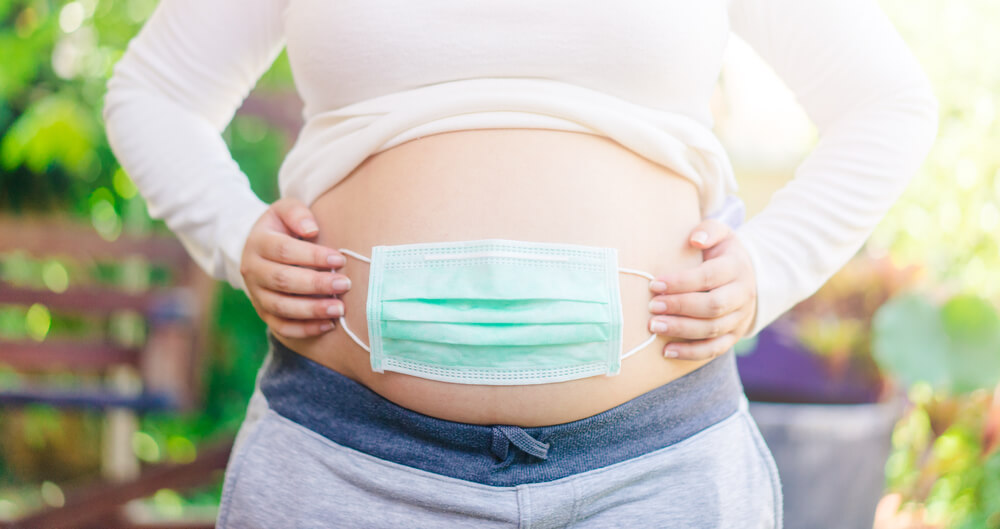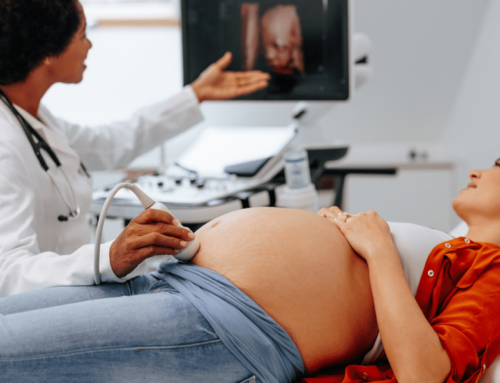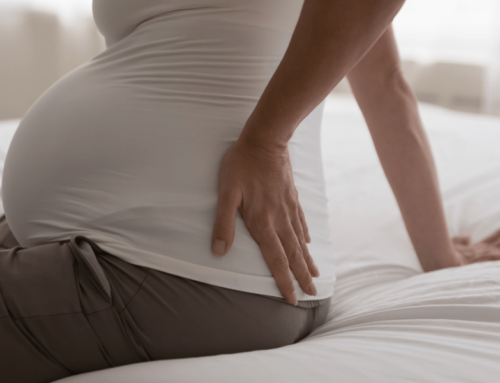COVID-19, the new virus infection commonly happens when the person who already has Coronavirus sneezes or coughs, with the virus particles traveling through the air as respiratory droplets. It’s also possible to contract the virus via touch, by touching one’s eyes, mouth, or nose. The incubation period seems to last anywhere between two and fourteen days, but it’s also possible for the infected people to be asymptomatic (have no symptoms at all). Even though people that are 65+ years old are at risk the most, no one is safe from it. Therefore, it’s only natural that everyone is worried and wants to know as much as possible to protect themselves from COVID-19. That said, pregnant ladies are especially concerned, as they have to take good care of their own health and the health of their growing babies. Keep on reading to learn more about this globally-spread virus when pregnant.
What Does the Corona Do to the Body?
Eight out of ten people will experience mild symptoms such as fever and dry cough. It’s also possible to deal with a sore throat, headache, and other body aches typical of flu. Those that do develop more severe symptoms of the disease can experience targeted inflammations within the body, the most common being the inflammation of the lungs i.e. pneumonia. If this infection cannot be contained, it might become necessary to use a ventilator for breathing. Only around 14% of patients get affected this severely. Unfortunately, 6% of the Corona-infected patients could become critically ill, suffering from acute respiratory distress syndrome, septic shock, and/or organ failure.
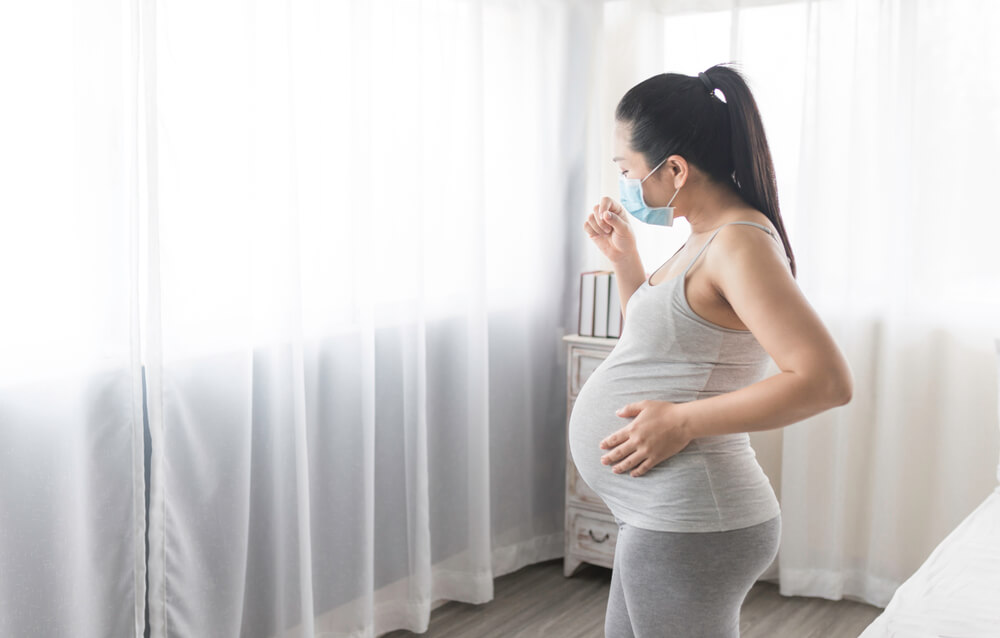
Can I Do Something to Protect Myself?
The first step in protecting yourself and your unborn child from Coronavirus is to wash your hands properly and regularly. This involves using soap and warm water for at least 20 seconds. If possible, practice self-discipline so that you completely avoid touching your eyes, nose, and mouth. The second step involves social distancing. If you have to go out, there’s no helping it, but make sure to wear a protective mask and gloves and stay at least 6 feet away from other people. Ideally, stay at home for as long as possible and definitely avoid any form of social gathering. This also includes any type of traveling and even joyous occasions such as baby showers. Remember to hydrate yourself properly, take the prescribed vitamins regularly, and follow the doctor’s pregnancy advice to a tee.
What to Do If I Have a Fever or Cough?
In case you have a fever or dry cough, it’s crucial that you call your doctor as soon as possible. Then you can inform them about your symptoms and movements via the phone. Never go directly to the doctor’s office if you’re suspecting you’re ill. This particular time of the year is known for seasonal allergies and less dangerous viruses, and your condition might not be the result of Coronavirus after all. By phoning the doctor’s office and describing your symptoms, the doctor will decide whether you need the testing for COVID-19 at all and/or have to come to the office for evaluation.
What Can I Expect If I’m Positive for Coronavirus?
Keep in mind that there has been no evidence to show that getting the virus when pregnant instantly increases the possibility of developing severe symptoms of the disease. Also, being pregnant has no effect on the likelihood to contract the virus. You’re at risk as much as an average person. If you do happen to contract the virus, your pregnancy wouldn’t worsen the symptoms. Considering the pregnancy age range, chances are you would only develop mild to moderate symptoms. It’s true that pregnant women are considered more vulnerable when it comes to infection and other more well-known viruses such as flu. However, in regards to COVID-19 and known cases in pregnant women so far, there are no data showing that being pregnant automatically means more severe disease symptoms or any dangerous complications.
Am I at Risk of Miscarriage If I’m Infected with Coronavirus?
So far, there have been no reports that COVID-19 infection in pregnancy increases the risk of miscarriage or any other complications such as improper fetus development. It’s true, however, that pregnant ladies may be at risk of preterm birth when Coronavirus-positive. This is definitely not a fact set in stone and doesn’t have to be the case with you.
Can I Pass the Virus on to My Baby?
More studies are still necessary to answer every single question with 100% certainty due to the novel nature of COVID-19. In the studies that have been done so far, most of the examined women were in their third trimester of pregnancy. That said, a study of nine pregnant women with Corona infection has undergone a thorough evaluation and the result shows that no traces of the virus were present in the amniotic fluid, breast milk, or their babies’ throats. Another study involved 38 infected women who had just given birth, and the results showed that none of the newborn children were tested positive for or affected by this virus in any way. Therefore, so far it seems that the likelihood of passing the virus onto your baby while pregnant is zero to none. Maternal infection doesn’t seem to have any correlation with the healthy development of the fetus. In case you have to deal with high fever during your third trimester, the safest option is to take acetaminophen for lowering the temperature safely for both you and the baby.
Should I Continue with Prenatal Visits?
Doctors around the world are encouraging their patients to have phone health visits or even use the Internet for health checkups. The same practice applies to this virus and pregnancy, as well. Of course, depending on your general condition, your obstetrician might opt for direct visits that are just a bit further in between. Feel free to discuss the benefits of getting your own blood pressure cuff with your doctor so that you can use it at home and keep track of your child’s movements.
Am I Even More at Risk in the Hospital After Delivery?
Of course, the moment you feel that there’s any concern in regards to your or your baby’s health, call your obstetrician. And if your doctor feels like it’s fine for you to attend the appointments regularly, make sure to do so. Thanks to the social distancing practice and recommended movement limit, not too many people are coming to the hospitals. What’s more, patients who have tested positive for COVID-19 are kept separately from the other patients. You can also count on the highest precaution measures practiced by the medical staff in order to reduce the risk of exposure as much as possible. Of course, if you feel fine soon after giving birth and there were no complications or concerns whatsoever, you can talk to your obstetric team and ask to be released home earlier.
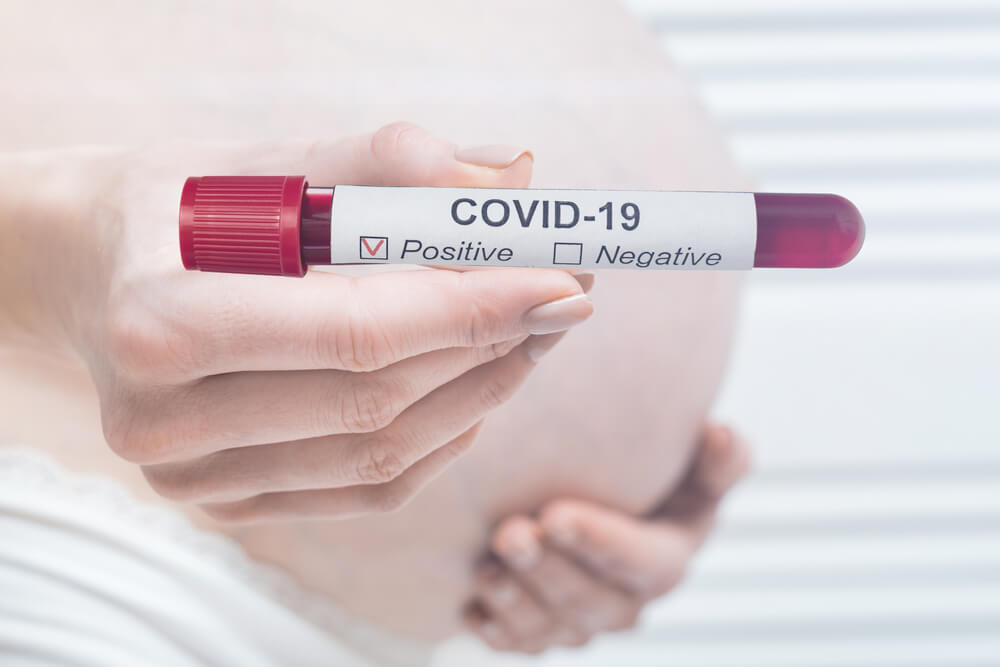
Is It OK to Breastfeed My Newborn?
If you were diagnosed with the virus pregnant, you might be worried about the ability to breastfeed your baby even after delivery. However, you should know that there has been no data to show the presence of Coronavirus in breast milk at all. The bigger issues are the respiratory droplets and contaminated hands. This is why all new mothers should do their best to wash their hands regularly as suggested, and maybe even wear a mask to protect their infant from the immediate virus exposure. In case you’re still worried about breast milk and feeding your baby while infected with COVID-19, a good solution would be to express the milk with a breast pump, and then have someone else clean the pump and feed the baby.
Can My Birth Partner Be Present During the Birth?
Coronavirus doesn’t prevent you from having your birth partner with you during the delivery. What’s more, this is even encouraged, as the presence of someone you trust can significantly affect your mental well-being, which can, in turn, influence your physical state. However, if your birth partner has tested positive for Coronavirus, or shown any symptoms of COVID-19, they won’t be allowed to enter the maternity ward. Protective measures at some hospitals and clinics might ban the presence of birth partners for prenatal and antenatal appointments, but if they’re not infected, they should be able to stay by your side during the labor. If you want to ensure complete safety for yourself and your unborn child, it’s crucial that you put trust into renowned and experienced obstetrics and gynecology team.
At Trogolo Obstetrics and Gynecology office, we pride ourselves in delivering a more personalized approach to healthcare for the women of Jacksonville. If you have any questions and concerns in regards to your well-being during Coronavirus, don’t hesitate to reach out to us.


